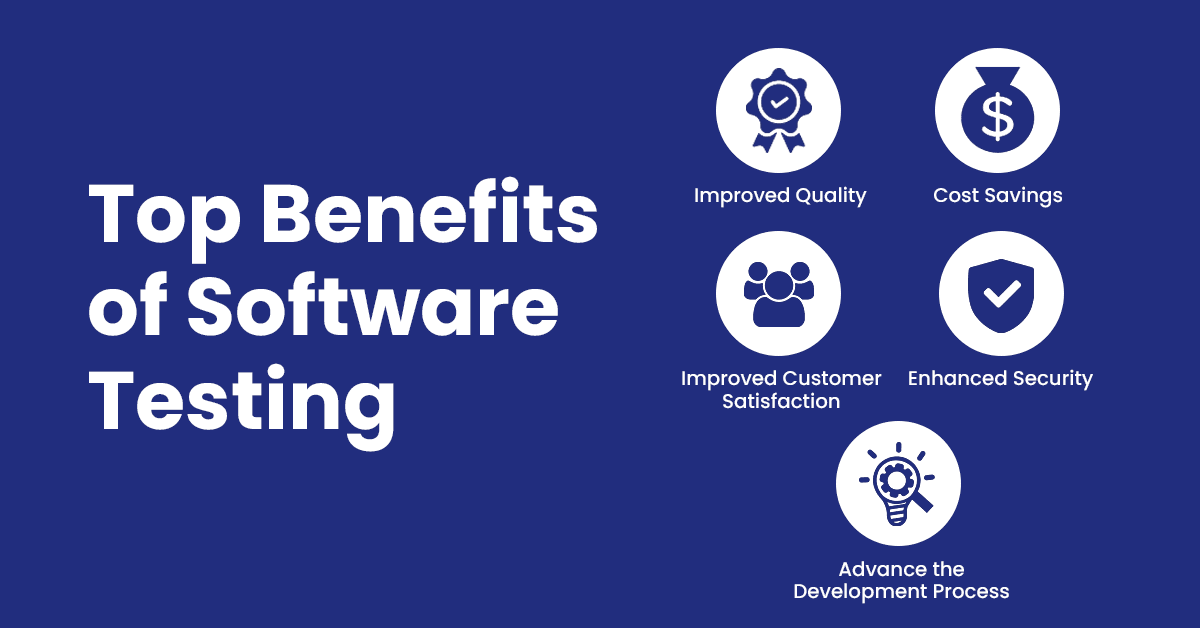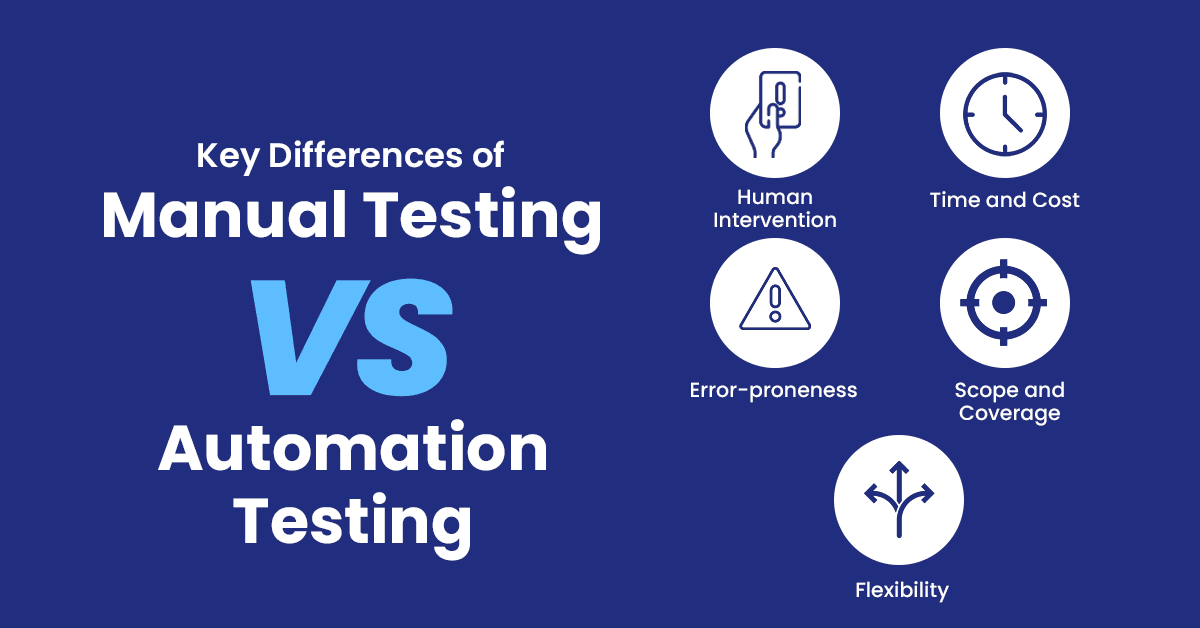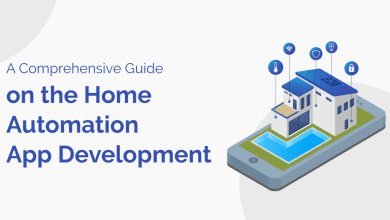Types of Software Testing: The Complete Guide For Business Owners

Introduction
Imagine you’re working on a coding project. You’ve been putting in a lot of hours, diligently writing code, and pulling all-nighters to squash bugs. This is all par for the course before releasing the software product. The next phase involves performing several tests on your code to ensure it does what it intends. This is precisely where the testing process actually comes in. But before we get into the specifics of types of testing, let’s establish what we mean by software testing so that we’re all on the same page.
Software testing, in its most basic definition, is the procedure for analyzing a program’s numerous parts to ensure it meets its stated objectives and is suitable for distribution to customers. In this article, we’ll cover the various types of software testing that are prevalent in the tech industry and how you can leverage all software testing types to deliver top-notch results to your customers.
Top Benefits of Software Testing

Software testing is crucial because it allows developers to identify and resolve any bugs with the software ahead of time. A well-tested software solution guarantees reliability, security, and excellent performance, which reduces time spent on development, increases efficiency, and improves customer satisfaction. Consider these five major benefits you can achieve with software testing:
1. Improved Software Quality
The primary objective of different types of testing is to offer a high-quality product to the customer, ultimately resulting in client satisfaction. A product’s quality can only be sustained if it is error-free and completely satisfies the demands of its intended audience.
Throughout any type of software testing process, an application is subjected to a variety of testing techniques to produce a high-quality final product, and the testing team does its best to verify bug-free, error-free applications by designing test cases and test scenarios.
2. Cost Savings
Every app needs regular maintenance, and the owner of that application usually has to fork out significant funds to keep it running smoothly and reliably. An application’s owner can save a lot of money if it operates flawlessly and requires little upkeep costs.
In contrast to finding flaws after the software has been completely developed, which may be a costly and time-consuming process, all types of software tests help the company save money by catching problems early on, when it is much simpler and cost-effective to fix them by redesigning the faulty module.
3. Improved Customer Satisfaction
In the service industry, client happiness is the sole metric of success, and providing the best possible services and experience to clients, and exceeding their expectations eventually is the top priority of most service-based companies.
With different types of software testing, you not only deliver a flawless application, but also gain the patronage and contentment of the client.
4. Advance the Development Process
The only way to guarantee an on-time or ahead-of-schedule product delivery is faster development. By flagging out potential vulnerabilities early on, different testing types in software allow development teams to work more efficiently. A software testing team works in tandem with the development team to identify problematic areas. In the early phases of system development, the observed challenge may be quickly rectified without impacting the performance of other functions.
5. Enhanced Security
In today’s highly connected world, data security is of paramount importance. Users will always value a safe and reliable system. To protect their investments from theft, hackers, and other threats, owners often spend thousands of dollars. Different types of testing in software engineering are used to determine the security level of an application, where testers look for vulnerabilities that might compromise the program’s security. Once identified, the development team seals them by incorporating additional safeguards into the software.

Types of Software Testing in Software Engineering
In today’s world, users have high standards for preferred applications. Your app’s user base will quickly dwindle if it’s riddled with functionality issues, bugs, and glitches. For this reason, it is crucial that your software undergo rigorous testing to guarantee that the functioning of the generated software is checked, verified, and validated and that the best possible user experiences are provided.
Recent years have witnessed two major types of testing in software testing, manual and automated testing, and usually, both software testing examples are leveraged in tandem to offer quality products to customers.
What are The Different Types of Testing?
1. Manual Testing
Manual testing is the kind of software testing you can do when functioning on a shoestring budget. It is a software testing method that involves executing test cases manually without the use of automated tools. The objective of manual testing is to ensure that the software is working as specified in the requirement document from an end user’s perspective.
Perks of Manual Testing
- Can be implemented even on limited funds
- Suitable for applications with frequently altering graphical user interface (GUI)
- Minimal coding is needed for rapidly testing small changes
- Allows testers to interact with applications as real users
- fast and accurate visual feedback.
Downsides of Manual Testing
- Requires a substantial amount of human resources
- Highly susceptible to errors,
- Test code is often not reusable
- Incomplete testing coverage
- Extremely time-consuming
2. Automation Testing
The term “automation testing” is used to describe a type of software testing in which a whole array of test cases is executed with the help of dedicated automated testing software. Frameworks are used in automated testing to execute tests automatically. Every framework is pre-programmed with specific automation rules for the code being tested. Automated testing software helps facilitate the input of test data into the system being tested, the comparison of predicted results with actual results, and the generation of comprehensive test reports.
Perks of Automated Testing
- Automation is 70% quicker than manual testing
- Faster detection of errors
- Automation of the testing process is reusable and scalable
- Boosts team output and morale
- Comprehensive and straightforward reporting
Downsides of Automated Testing
- High initial migration costs
- Demands higher expertise from workforce
- Does not go well with Waterfall-style project management
- Automation scripts need to be reusable to remain cost-effective
- 100% automation is unachievable
Manual Testing vs Automation Testing: 5 Key Differences
Here are five key differences between manual testing and automation testing:

Human Intervention
Manual testing is conducted by humans, whereas automation testing involves the use of tools and scripts to run test cases.
Time and Cost
Manual testing is time-consuming and labor-intensive, while automation testing is faster and more cost-effective in the long run.
Error-proneness
Manual testing is more prone to errors, while automation testing is less susceptible to errors as the tests are scripted and run consistently.
Scope and Coverage
Manual testing is suitable for testing small-scale applications, whereas automation testing is ideal for large-scale and complex web applications that require testing on a broader scale.
Flexibility
Manual testing allows testers to adapt to changes quickly and easily, while automation testing requires updates to the test scripts whenever there are changes to the application.
Is Automation Testing Better than Manual Testing?
Manual testing involves verifying the integrity of code by human inspection, as opposed to using pre-existing automated scripts or tools. Here, testers devote considerable time and energy to creating test cases and running tests.
For example, if we want to ensure that a certain feature of our app works well across fifty to sixty different browsers, devices, and software platforms, then manual testing wouldn’t be the best option. Rather, you may save time and effort by employing automation technologies to get access to hundreds of browser-devices-operating-system combinations.
The following are some of the most important benefits of automated testing over manual testing:
Time-saving
Manual testing, as everyone knows, is tedious and slows down the whole software development process. Automation testing streamlines and speeds up the software development life cycle by eliminating manual, repetitive tasks.
Labor-efficient
With automated testing, test cases can be written once and reused several times. For even more accuracy and power, certain automation solutions allow for the development of a comprehensive bug report for the rejected case.
Budget-friendly
In order to manually test commercial software, you’ll need a specialized testing crew. Automation testing, on the other hand, allows the whole testing process to be mechanized by a small team or just a single individual.
Team Coordination
Working as a team is crucial when executing complicated tests; this is a challenge when using manual testing methods, but automated testing makes it easy to bring on new team members for evaluation of test cases or to provide input.
Easy-to-use
Test automation is simpler to oversee than manual testing. The whole process of testing may be automated with automation testing, and it can all be managed from a centralized GUI.
Domain-wise QA Focus
Earlier, the QA industry had a broad, general focus and did not place much emphasis on understanding specific business domains. However, the industry has evolved to require domain expertise as an essential component. Therefore, Quality Assurance teams must possess a deep understanding of the relevant business domain while testing an application. In order to establish themselves as trusted quality gatekeepers, QA teams must meet the required standard of domain knowledge.
Having domain knowledge can provide testing projects with an advantage by enabling testers to prioritize features for test execution and apply underlying business rules. Experts with domain-specific knowledge can test applications from the perspective of end-users in the most effective manner possible. Domain knowledge can also provide Quality Assurance teams with multiple benefits throughout the Software Development Lifecycle. A few major benefits of being domain specialized include:
- Enables rapid requirement analysis
- Yields better user story development
- Fosters team capacity building
- Provides an in-depth understanding of technical terminology
- Enables effective bug prioritization
- Facilitates swift training
- Enhances team efficiency
Deploy Quality-assured Testing Practices with OneClick
With over 10+ years of experience, OneClick is a leading provider of quality assurance and software testing services in USA and worldwide, helping businesses across various industry verticals achieve their desired outcomes. Our team of QA testing specialists performs a thorough examination of your software’s quality to detect any bugs or defects, utilizing a unique software testing approach. We conduct multiple tests to ensure that the solution is accurate, efficient, secure, and scalable.
Our expertise extends to all industry-leading tools, such as Selenium, Ranorex, Appium, NeoLoad, Apache JMeter, Katalon, Watir, IronWASP, SQL map, ZAP, Selendroid, Testdroid, and more. Our QA testers keep all stakeholders in the loop throughout the process, including the client, project managers, developers, and business analysts.
Our quality assurance software testing services include functional testing, compatibility testing, automation testing, end-to-end testing, vulnerability testing, UI testing, core testing, multi-tier testing, API testing, performance testing, security testing, stress testing, regression testing, and more. We cover various industry verticals in the USA, UK, and globally to meet industry standards and compliance guidelines. Book a call with us today!





